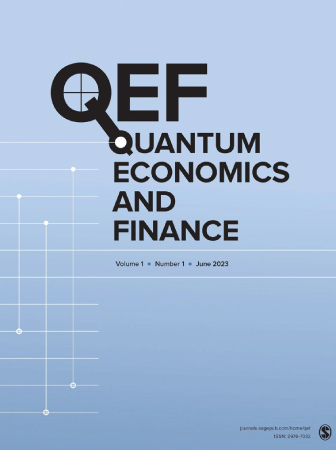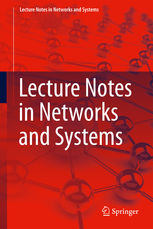Scope
Quantum economics and quantum finance are emerging interdisciplinary fields that apply the principles and methodologies of quantum physics, especially those associated with quantum mechanics, to problems and models in economics and finance. These fields represent a confluence between economic and financial science and quantum theory. They seek to overcome the limitations of traditional methods and provide new perspectives and tools for analysis and decision-making. The Workshop on Quantum Economics and Sustainable Futures is at the intersection of multiple disciplines, both advanced and emerging ones. It offers a unique platform for knowledge exchange with the aim of promoting quantum computing innovations in the field of finance and economics. The most recent advances in quantum economics and quantum finance will be explored at the Conference so as to keep track of how quantum computing is transforming these disciplines. In addition, the arising challenges and opportunities will be discussed. The Conference will underscore the importance of achieving sustainability across different disciplines, especially in the context of cutting-edge developments and intersecting fields of knowledge. In this regard, the last ASET Special Session highlighted that the connection between sustainability and technological development is crucial for societal advancement. ASET's breakthrough comes in the form of the 1st International QUEST Workshop which will delve into issues relating to economic and technological sustainability, environmental impact and technology, and the integration of sustainability in organisations and companies. The importance of sustainability among organisations, in terms of resource management, financial value creation and ecological effects, will be highlighted. In addition, disruptive technologies, including quantum technologies, will be an important part of the debate. Technological advancement, particularly in the most disruptive areas, such as quantum technology, must be coupled with sustainability standards and other related matters, such as social and legal perspectives. In any case, the development process must be multidisciplinary; involving experts from across diverse areas of knowledge.
Topics
The current economic landscape requires a better understanding of the present and future challenges associated with quantum economics, finance, and sustainability. Such a need calls for interdisciplinary and intersectoral collaboration to identify new areas of research and development. This endeavor aims to establish an action and a policy agenda for the adoption and integration of quantum technologies in economics, finance, and sustainability. Countless fields of technology demonstrated the importance of sustainability; indeed, the connection between sustainability and technological development is crucial to social development.
QUEST offers a space for discussion on the most outstanding advances in the application of Quantum Computing in economic, financial, and sustainable sectors, which are vital to the current economy. It will cover different perspectives on these and other potentially related issues:
- Exploring the Applications of Quantum Computing in Economics and Finance: Publications analysing how quantum computing can solve complex problems in economics and finance, particularly problems that classical computational methods have not been able to solve.
- Innovation in Financial Modelling with Quantum Technology: Publications studying the potential of quantum models in portfolio optimisation, risk assessment and market prediction.
- Challenges in Cybersecurity and Blockchain in the Quantum Context: Publications discussing the challenges and solutions in cybersecurity, especially regarding quantum cryptography and blockchain, in an economic-financial scenario.
- Integration of AI and Machine Learning with Quantum Computing for Financial Analytics: Publications evaluating how the combination of AI, machine learning and quantum computing redefines financial analysis and decision making.
- Sustainable Development Inspection in the Framework of New Technologies as a Technology for Quantum Development: Research related to sustainability and technology, encompassing the application of quantum computing in sustainable development to solve problems such as ecological modelling and natural resource optimisation. Publications focusing on the environmental impact of technologies and the importance of integrating sustainability principles throughout their life cycle. In addition, publications that look at the development of policies and regulations that would encourage the advancement of sustainable technologies, including environmental standards and incentive systems. Moreover, an exploration of how technologies can support the circular economy, optimising supply chains and developing sustainable materials. Finally, publications addressing ethical and governance issues in technology development, emphasising equity of access, data privacy and security.
- Multidisciplinary Approach: An exploration of the interdisciplinary dialogue and of the social, legal and ethical challenges and considerations. Publications focusing on the social synergies inherent in the study of unlimited needs and limited resources to meet them and accelerate progress in this cutting-edge field.
Organizing Committee
CHAIRS
- Juan Luis Sánchez Toural, Autonomous University of Madrid (Spain)
- Juan Manuel Corchado Rodríguez, University of Salamanca (Spain)
- Javier Parra Domínguez, University of Salamanca (Spain)
CO-CHAIRS
- Emmanuel Haven, Centre for Quantum Social and Cognitive Science (CQSCS) at Memorial University (Canada)
- Fernando De la Prieta, University of Salamanca (Spain)
- Juan Carlos García Escartín, University of Valladolid (Spain)
- Paulo Leitão, Polytechnic Institute of Bragança (Portugal)
- Javier Prieto, University of Salamanca (Spain)
- Tan Yigitcanlar, Queensland University of Technology (Australia)
- Marcela Herrera, Universidad Autónoma de Occidente (Colombia)
- Dominic Widdows - IonQ (United States)
Program Committee
- Jean-Paul Andrieu, Loyola Marymount University (USA)
- Nikola Balic, University of Split (Croatia)
- Juan Ignacio Benito Fiz, NTT Data (Spain)
- Lydia Belkadi - KU Leuven Centre for IT & IP Law (CITIP) (Belgium)
- Nicolas Clavijo Buriticá, University of Porto (Portugal)
- Luis Fernando Castillo Ossa, University of Caldas (Colombia)
- Jorge Cruz-Cárdenas, Research Center in Business, Society, and Technology, ESTec Universidad Indoamérica (Ecuador)
- Omar Calderón Losada, Universidad del Valle (Colombia)
- Kevin Corella Nieto, NTT Data (Spain)
- Chabela De la Torre Olvera, University of Salamanca (Spain)
- María Ángeles Fernández López, University Camilo José Cela (Spain)
- Emiliano García Coso, ICADE - Law School (Spain)
- Raquel Guzmán Ordaz, University of Salamanca (Spain)
- Carmen Iglesias Martín, University of Salamanca (Spain)
- María Ángela Jiménez Montañés, University of Castilla La Mancha (Spain)
- Jonas Queiroz, São Paulo State University (UNESP), IGCE/DEMAC (Brazil)
- Marcelo Lampkowski, ICLEI – Local Governments for Sustainability (Germany)
- Ana María López Echeverry, Technological University of Pereira (Colombia)
- Pedro José Martínez Córdoba, University of Salamanca (Spain)
- Pablo Garrido Prada, University of Salamanca (Spain)
- Joaquim Clara Rahola, KHN Capital Consulting (Spain)
- Guillermo Rivas, AIR Institute (Spain)
- Sara Rodríguez González, University of Salamanca (Spain)
- David Fernando Ramírez Moreno, Universidad Autónoma de Occidente (Colombia)
- Vanessa Jiménez Serranía, University of Salamanca (Spain)
- Elsa Beatriz Suarez Kimura, University of Buenos Aires (Argentina)
- Joan Torrent Sellens, Universitat Oberta de Catalunya, (Spain)
- Nuria García Rabanal, University of Leon (Spain)
- Lica Erhan, Academy of Economic Studies of Moldova (Moldova)
Special issue
Authors of selected papers from the conference will be invited to submit to the Special Issue - Quantum economics and sustainable futures - to be published in QEF - ‘Quantum Economics and Finance’ a new journal published by Sage Publications.
QEF is a single-anonymized peer reviewed journal. Accepted papers are published at no cost to authors.
QEF is a journal published in collaboration with the Centre for Quantum Social and Cognitive Science (CQSCS) at Memorial University, Canada.
The journal covers a variety of areas of interest such as
- quantum computational/algorithmic aspects in finance
- applications of the quantum formalism to derivative pricing and financial economics and
- economic decision making.
Work drawing on other branches of quantum social science, such as quantum cognition or quantum game theory, will be welcome, as will papers reporting on how techniques from quantum computing are changing the way we think about and model the financial system.
Contact
Javier Parra Domínguez
Ph.D. Associate Professor at the Department of Business Studies University of Salamanca
Avda. Fernando Ballesteros 2, 37700
Béjar, Salamanca (Spain)
e-mail: javierparra@usal.es


